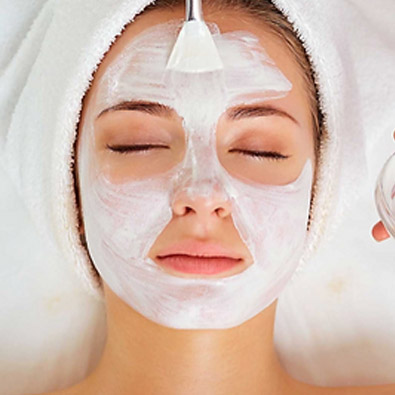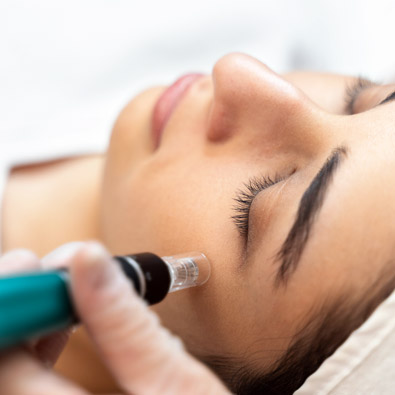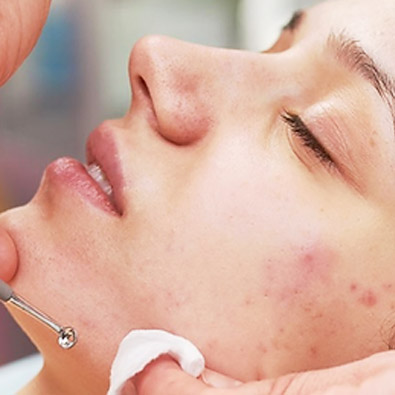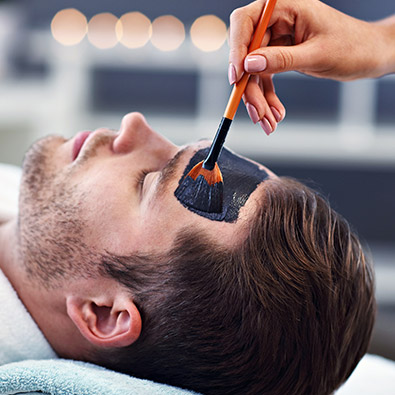Acne, a common skin concern that impacts individuals of all ages, does not have to rule your life and be all-consuming, as it seems to be for so many! Acne can be better understood with the help of an expert who can offer you personalized treatment options.
This comprehensive guide, below, will shed light on the path ahead. By consulting with us directly, you can receive firsthand answers and benefit from our wide range of tools tailored to your specific circumstances. Erin Blaser, the visionary behind Skyn Esthetics, recommends the remarkable Aerolase Laser as one powerful method to effectively treat active acne and acne scarring. In conjunction with that, she also recommends the Clearing Serum AlphaRet along with the AlphaRet exfoliating peel pads, both from SkinBetter, as another weapon in the acne battle. Come in and meet with Erin for a precise and personalized consultation. You’ll be so happy that you did!
Diagnosis of Acne
To diagnose acne, healthcare providers may:
- Ask about your family history, and, for girls or women, ask about their menstrual cycles.
- Ask you about your symptoms, including how long you have had acne.
- Ask what medications you are currently taking or recently stopped.
- Examine your skin to help determine the type of acne lesion.
- Order lab work to determine if another condition or medical disorder is causing the acne.
Treatment for Acne
The goals of treatment are to help heal existing lesions, stop new lesions from forming, and prevent scarring. Medications can help stop some of the causes of acne from developing, such as abnormal clumping of cells in the follicles, high sebum levels, bacteria, and inflammation. Your doctor may recommend over-the-counter or prescription medications to take by mouth or apply to the skin.
Topical medications, which you apply to the skin, include:
- Over-the-counter products, such as benzoyl peroxide, which kills bacteria and may decrease the production of sebum.
- Antibiotics, which are usually used with other topical medications.
- Retinoids, which come from vitamin A and can help treat lesions and reduce inflammation. They can also help prevent the formation of acne and help with scarring.
- Salicylic acid, which helps break down blackheads and whiteheads and also helps reduce the shedding of cells lining the hair follicles.
- Sulfur, which helps break down blackheads and whiteheads.
Topical medicines come in many forms, including gels, lotions, creams, soaps, and pads. In some people, topical medicines may cause side effects such as skin irritation, burning, or redness. Talk to your doctor about any side effects that you experience.
For some people, the doctor may prescribe oral medications, such as:
- Antibiotics, which help slow or stop the growth of bacteria and reduce inflammation. Doctors usually prescribe antibiotics for moderate to severe acne, such as severe nodular acne (also called cystic acne).
- Isotretinoin, an oral retinoid, which works through the blood stream – bloodstream to help treat acne and open up the pore. This allows other medications, such as antibiotics, to enter the follicles and treat the acne. Similar to topical retinoids, taking the medication by mouth can also help prevent the formation of acne and help with scarring.
- Hormone therapy, used primarily in women, which helps stop the effects of androgens on the sebaceous gland.
- Corticosteroids, which help lower inflammation in severe acne, including severe nodular acne.
Some people who have severe acne or acne scarring that does not respond to topical or oral medications may need additional treatments, such as:
- Laser and other light therapies. However, researchers are still studying the best types of light and the amount needed to treat acne.
- Injecting corticosteroids directly into affected areas of your skin.
- Superficial chemical peels that a doctor recommends and applies to the area.
- Filling acne scars with a substance to improve their appearance.
- Treating acne scars with tiny needles to help induce healing.
- Surgical procedures to help treat and repair scarring.
In addition to experiencing significant scarring, people of color can develop skin discoloration after acne heals. Your doctor can suggest a treatment approach that can fade existing dark spots. Using sunscreen when outdoors is especially important to help treat and prevent dark spots.
Who Treats Acne?
The following health care providers may diagnose and treat acne:
- Dermatologists, who specialize in conditions of the skin, hair, and nails.
- Primary health care providers, including family doctors, internists, or pediatricians.
Living With Acne
If you have acne, the following recommendations may help you in taking care of your skin.
- Clean your skin gently. Use a mild cleanser in the morning, in the evening, and after heavy exercise. Try to avoid using strong soaps, astringents, or rough scrub pads. Rinse your skin with lukewarm water.
- Shampoo your hair regularly, especially if you have oily hair.
- Avoid rubbing and touching skin lesions. Squeezing or picking blemishes can cause scars or dark blotches to develop.
- Shave carefully. Make sure the blade is sharp, and soften the hair with soap and water before applying shaving cream. Shave gently and only when necessary to reduce the risk of nicking blemishes.
- Use sunscreen, and avoid sunburn and suntan. Many of the medicines used to treat acne can make you more prone to sunburn.
- Choose cosmetics carefully. All cosmetics and hair care products should be oil free. Choose products labeled noncomedogenic, which means they do not clog pores. In some people, however, even these products may make acne worse.
Acne can cause embarrassment or make you feel shy or anxious. If you have any of these feelings, talk to your doctor.
Start your journey toward clearer skin and unlock a newfound sense of confidence and self-assurance. Don’t let acne hold you back – take the first step now. Our experienced team specializes in personalized skin care solutions. Schedule an appointment today at 561-602-3383.
Reference: [https://www.niams.nih.gov/health-topics/acne/diagnosis-treatment-and-steps-to-take]





































